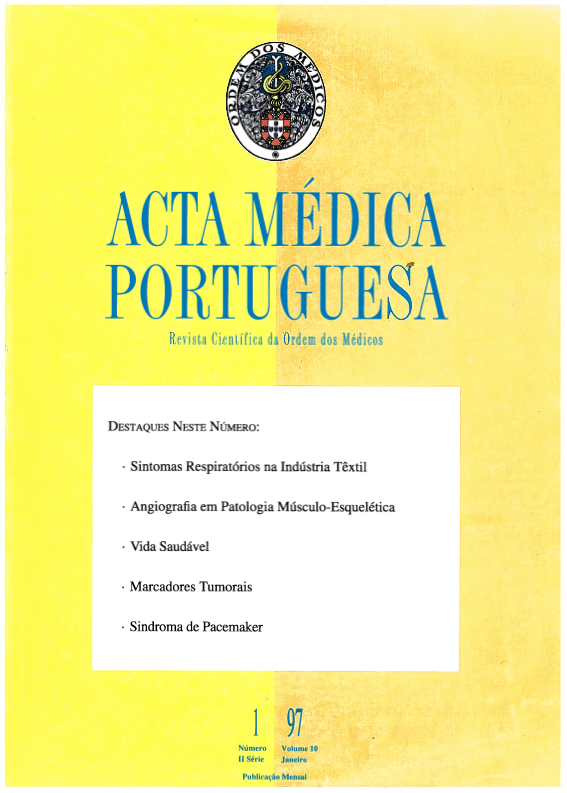Marcadores tumorais (alcances e limites).
DOI:
https://doi.org/10.20344/amp.2376Resumo
The author reviews and discusses the clinical utility of the major tumor markers. In spite of advances in the analytical systems, until recently there were no tumor markers that detect early stage cancer or that were absolutely specific or diagnostic for malignancy. Most of them are normal glycoproteins (that accompany the genetic deregulation of carcinogenesis) which are released into the blood and depend on liver function for their catabolism. Therefore such assays are of no use for screening healthy populations and a normal value does not exclude cancer. Their use may be of great help to the clinician in a number of ways: (1) primary staging of patients known to have cancer; (2) screening of high-risk individuals for the presence of some malignancies; (3) monitoring of the effectiveness of therapy; (4) patient's follow-up for early detection of relapses or metastases; (5) prognostic indexes; and (6) immunodetection of metastatic sites. Whatever the applications, a good clinical judgement is crucial for the use of these assays, with a critical look at the extent to which they contribute to a favorable outcome. At present, we think that their use in check-up studies should be avoided.Downloads
Downloads
Como Citar
Edição
Secção
Licença
Todos os artigos publicados na AMP são de acesso aberto e cumprem os requisitos das agências de financiamento ou instituições académicas. Relativamente à utilização por terceiros a AMP rege-se pelos termos da licença Creative Commons ‘Atribuição – Uso Não-Comercial – (CC-BY-NC)’.
É da responsabilidade do autor obter permissão para reproduzir figuras, tabelas, etc., de outras publicações. Após a aceitação de um artigo, os autores serão convidados a preencher uma “Declaração de Responsabilidade Autoral e Partilha de Direitos de Autor “(http://www.actamedicaportuguesa.com/info/AMP-NormasPublicacao.pdf) e a “Declaração de Potenciais Conflitos de Interesse” (http://www.icmje.org/conflicts-of-interest) do ICMJE. Será enviado um e-mail ao autor correspondente, confirmando a receção do manuscrito.
Após a publicação, os autores ficam autorizados a disponibilizar os seus artigos em repositórios das suas instituições de origem, desde que mencionem sempre onde foram publicados e de acordo com a licença Creative Commons









